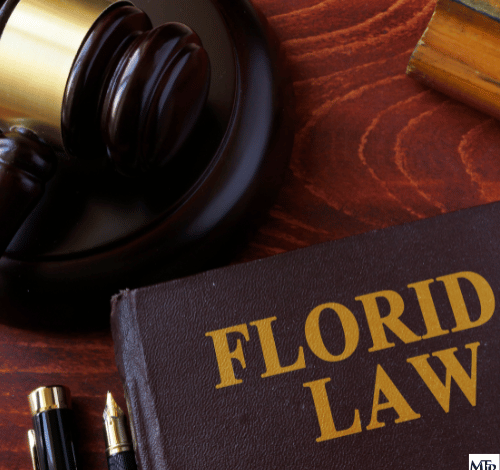[et_pb_section fb_built=”1″ _builder_version=”4.23.4″ _module_preset=”default” custom_padding=”115px|||||” global_colors_info=”{}” theme_builder_area=”post_content”][et_pb_row module_class=”single-contents” _builder_version=”4.26.1″ _module_preset=”default” custom_margin=”-76px|auto||auto||” global_colors_info=”{}” theme_builder_area=”post_content”][et_pb_column type=”4_4″ _builder_version=”4.23.4″ _module_preset=”default” global_colors_info=”{}” theme_builder_area=”post_content”][et_pb_text _builder_version=”4.24.0″ _module_preset=”default” custom_margin=”|||-85px||” global_colors_info=”{}” theme_builder_area=”post_content”]
Governor Ron DeSantis recently signed House Bill 7021 (HB 7021) into law, a significant piece of legislation aimed at reforming Florida’s mental health and substance abuse laws, particularly the Baker and Marchman Acts. These laws govern the involuntary commitment of individuals experiencing mental health crises or substance abuse issues. The reforms introduced by HB 7021 are intended to modernize these decades-old laws, which have been criticized for being overly complex, difficult to navigate, and under-resourced.
One of the key components of this bill is the allocation of $50 million to improve crisis response and mental health services across the state. This funding will be used to enhance crisis stabilization units, streamline intake procedures, and expand the availability of remote proceedings. Additionally, the law lifts a cap on crisis stabilization beds, making it easier for minors and other vulnerable populations to access voluntary treatment.
The bill also gives law enforcement more discretion in determining whether an individual should be detained for an involuntary examination, addressing concerns that the current system often leads to unnecessary detentions. This is particularly important for individuals who may not qualify for involuntary commitment under the Baker Act due to conditions like dementia, Alzheimer’s, or traumatic brain injuries.
Moreover, HB 7021 includes provisions for improved data collection to better understand the outcomes of involuntary examinations and to guide future reforms. By 2026, the Florida Legislature expects to have sufficient data to make more informed decisions about the allocation of resources and the potential need for further reforms.
The passage of HB 7021 is seen as a monumental step forward in addressing the deficiencies in Florida’s mental health care system. It reflects a growing recognition of the need for a balanced approach that ensures public safety while respecting individual liberties. The bill received strong bipartisan support in the Florida Legislature, passing unanimously in both the House and Senate.
Supporters of the bill, including its chief sponsor, Republican Rep. Patt Maney, have praised the reforms as long overdue. They argue that the new law will put Florida on a positive trajectory, benefiting families and communities by providing more effective mental health care and crisis response services.
The law also includes specific measures aimed at making it easier for minors to access voluntary treatment and streamlining the processes involved in involuntary commitments. These changes are expected to reduce the burden on courts and law enforcement, while also ensuring that individuals in crisis receive the care they need in a more timely and efficient manner.
Overall, HB 7021 represents a comprehensive effort to overhaul Florida’s approach to mental health and substance abuse issues. It reflects a broader trend of states across the country reexamining and updating their mental health laws to better meet the needs of their populations. With Governor DeSantis’ signature, these reforms are now set to be implemented, marking a significant milestone in Florida’s ongoing efforts to improve its mental health care system.
Expanded Overview of HB 7021
Background and Context: House Bill 7021 (HB 7021), signed into law by Governor Ron DeSantis, is a landmark piece of legislation aimed at reforming Florida’s mental health care system, specifically targeting the Baker and Marchman Acts. These laws, which date back to the 1970s, govern the involuntary commitment of individuals with mental health disorders and substance use issues, respectively. Over the years, these acts have been criticized for being outdated, overly complex, and lacking the necessary resources to effectively address the needs of Floridians in crisis.
The need for reform became increasingly evident as the state grappled with growing concerns about the accessibility and efficiency of its mental health care services. Reports highlighted how the existing system often failed to adequately serve those in need, leading to unnecessary detentions, overburdened courts, and insufficient care for vulnerable populations, including minors and those with cognitive impairments like dementia and Alzheimer’s.
Key Provisions of HB 7021: HB 7021 introduces a comprehensive set of reforms designed to address these longstanding issues. One of the central features of the bill is the allocation of $50 million to enhance crisis response services across the state. This funding will be used to increase the capacity of crisis stabilization units, streamline the intake process for individuals undergoing involuntary examinations, and expand the use of remote proceedings to reduce the burden on courts and law enforcement.
A significant change introduced by the bill is the removal of the cap on crisis stabilization beds, which is expected to increase the availability of care for those in crisis. Additionally, the bill makes it easier for minors to access voluntary treatment, addressing a critical gap in the current system. This is particularly important given the rising rates of mental health issues among young people and the challenges they face in accessing appropriate care.
Another important aspect of HB 7021 is the increased discretion granted to law enforcement officers when determining whether to detain an individual for an involuntary examination. Under the previous system, officers were often required to detain individuals even in cases where it was not clear that they met the criteria for involuntary commitment. This led to situations where individuals with conditions like dementia or traumatic brain injuries were unnecessarily detained, causing significant distress and placing a strain on resources.
To ensure that the reforms are effective and informed by accurate data, HB 7021 includes provisions for enhanced data collection. The bill mandates the collection of data on involuntary examinations, including cases where individuals are not ultimately committed. This data will be used to guide future reforms and ensure that the state’s mental health care system continues to evolve in response to the needs of its population.
Legislative Journey and Bipartisan Support: The passage of HB 7021 was the result of extensive bipartisan collaboration. The bill was sponsored by Republican Rep. Patt Maney, a retired judge with firsthand experience in dealing with cases involving mental health and substance abuse issues. Rep. Maney worked closely with stakeholders across the political spectrum to craft a bill that addressed the concerns of various groups, including law enforcement, mental health professionals, and civil liberties advocates.
Throughout the legislative process, the language of the bill was continuously revised to reflect input from these stakeholders. This collaborative approach helped to build broad support for the bill, culminating in its unanimous passage in both the Florida House and Senate. The strong bipartisan support for HB 7021 underscores the widespread recognition of the need for reform and the shared commitment to improving the state’s mental health care system.
Impact on Florida’s Mental Health Care System: The signing of HB 7021 marks a significant milestone in Florida’s efforts to modernize its mental health care system. The reforms introduced by the bill are expected to have a far-reaching impact on how the state responds to mental health and substance abuse crises. By increasing access to care, reducing the burden on law enforcement and courts, and ensuring that individuals in crisis receive appropriate and timely treatment, HB 7021 has the potential to significantly improve outcomes for those grappling with mental health and substance use issues.
Moreover, the bill’s emphasis on data collection and evidence-based decision-making represents a forward-looking approach to mental health care reform. By gathering detailed data on the outcomes of involuntary examinations and other aspects of the system, Florida will be better positioned to identify areas for further improvement and to allocate resources more effectively in the future.
Challenges and Future Directions: While HB 7021 represents a major step forward, its implementation will undoubtedly face challenges. One of the key issues will be ensuring that the $50 million allocated for crisis response is used effectively and reaches the areas of greatest need. Additionally, the state will need to continue working with stakeholders to monitor the impact of the reforms and make adjustments as necessary.
Another potential challenge is balancing the need for public safety with the protection of individual liberties. The increased discretion granted to law enforcement under HB 7021 could lead to concerns about the potential for abuse or the overuse of involuntary commitments. To address these concerns, it will be important for the state to provide clear guidelines and training for law enforcement officers and to closely monitor the implementation of the new policies.
Looking ahead, the success of HB 7021 could serve as a model for other states grappling with similar issues. As mental health and substance abuse continue to be major public health concerns across the country, the reforms introduced in Florida could provide valuable lessons for other states seeking to modernize their own mental health care systems.
Conclusion: In summary, the signing of HB 7021 into law by Governor Ron DeSantis represents a significant achievement in the ongoing effort to reform Florida’s mental health care system. By addressing the deficiencies in the Baker and Marchman Acts, the bill aims to create a more responsive, efficient, and compassionate system for individuals experiencing mental health and substance abuse crises. The reforms introduced by HB 7021 are expected to have a profound impact on the lives of many Floridians, providing them with the care and support they need during times of crisis. As the state moves forward with the implementation of these reforms, it will be important to continue monitoring their impact and to remain vigilant in addressing any new challenges that arise.
[/et_pb_text][/et_pb_column][/et_pb_row][/et_pb_section]






